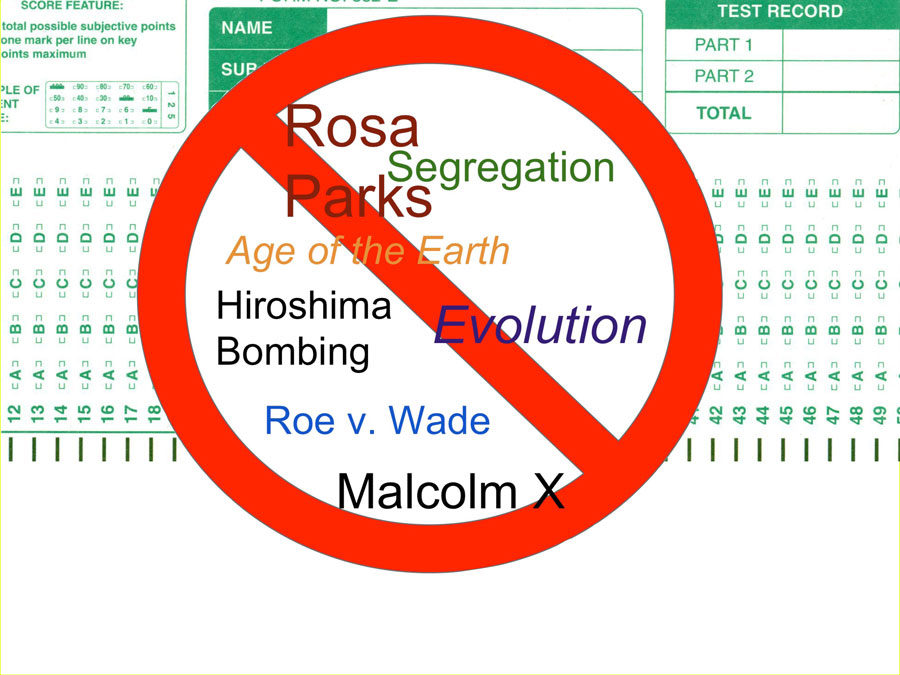Do Tests Determine What We Learn?
December 3, 2018
Rosa Parks, Malcolm X, the bombing of Hiroshima and Nagasaki. What will we learn about these historical figures and events in our social studies classes?
The New Mexico Public Education Department (NMPED) has been considering removing certain concepts and events from the social studies and science end-of-course exams. This decision affects all public school students in New Mexico.
Many lawmakers and teachers believe the proposal to remove civil rights activists from the EOC is a political statement. Some call it an attempt at rewriting history.
Ever since Governor Susana Martinez decided that teachers’ evaluations should be based on how well students do on the EOC exams, teachers are now encouraged to ensure their students understand every concept on the test. This seems to have resulted in fewer topics being tested. But which topics should be on the chopping block?
It is important to note that the actual standards for history classes would not change, only the items tested. But lawmakers argue that removing certain concepts from tests would deter educators from teaching about those concepts. Many teachers also argue that if history classes stop teaching about civil rights activists, where would students learn about people taking a stand?
In early 2017, NMPED proposed dropping important concepts from the science EOC, including the earth’s age, climate change and evolution. The thought of removing these crucial concepts sparked controversy and outrage among teachers, scientists and certain lawmakers. In the end, the department decided to not remove any important events from the science EOC exam.
But one look at the blueprint for next year’s U.S. history EOC reveals that certain concepts will be “emphasized.” Some of the events that are “unemphasized” include the dropping of atomic bombs on Japan, segregation, Roe v. Wade, Rosa Parks and Malcolm X. These topics will most likely not appear on the test.
Teachers and staff at Santa Fe High expressed their opinions on the subject.
“History is more susceptible to political trends,” said social studies teacher Mr. Morrison. “So, whatever political philosophy is in power is likely to manipulate history.”
Ms. Goldman, who teaches academic competitions at Santa Fe High, called the PED’s actions “not only a political statement, but a cultural statement.”
Mr. Morrison speculated that the issue is not so much about how or why history is changed over the years, but teaching students to understand who is changing the story. “It’s better to teach kids to look at something and say, oh, this is their version,” Mr. Morrison said. “I think it’s more important to teach kids how to analyze history.”
“They want to rewrite history,” Ms. Goldman added. “It’s revisionist history. And you cannot rewrite it. It’s written already. It’s done.”
Instructional coach Ms. Burkybile said, “We’re robbing you, the student, of an important understanding of pivotal points in history. If we focus less on the test, it can help teachers teach students more about what’s going on in the world.”
Ms. Goldman also stressed that science should not be altered for the sake of certain people’s feelings. “Evolution is scientifically sound. There is empirical data,” she said. “To remove something based on a group of people’s discomfort with actually scientific data is just kowtowing to radicals.”


